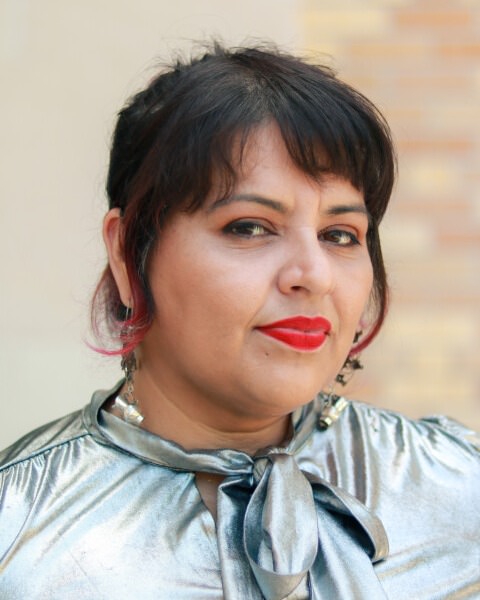Rachel González-Martin (she/her) is a career folklorist and associate professor of Mexican American and Latina/o Studies at the University of Texas where she currently serves as the department’s inaugural undergraduate advisor. She is affiliate faculty of the Center for Women and Gender Studies, Latino Media and Arts Studies, and the Center for Global Business. She is the author of Quinceañera Style: Social Belonging and Latinx Consumer Identities (2019). She directs the Intersectional Humanities Initiative in the College for Liberal Arts. Rachel is the current outgoing editor of the journal Western Folklore. She frequently serves as a section convener for the Chicana/o Section, and the Folklore Latino, Latinoamericano, and Caribeño Sections. She has assumed a variety of roles in her time as a member of AFS, including a term on the AFS nominating committee, as chair and member of the Cultural Diversity Committee, and as selection member of the Elli Köngas Miranda prize, and Zora Neale-Hurston prize committees. Her earliest role in the society was as a member for the Graduate Student Advisory committee while completing her Ph.D. in Folklore at IU. She hopes to continue to serve the society by sharing her ideas & experiences as queer, Latina first-generation scholar as a potential incoming member of the AFS executive board.
Statement of Candidacy:
The most significant opportunity and challenge we face as a society is the gap in communication and integration of ideas across different micro-generations of scholars and professionals. Academic and civic institutions as well as private intellectual industries, publishing and social networking have not only changed since the most senior among us matriculated through training programs, but the waves of change have been more frequent and more intense, birthing new academic, social, and political culture across micro-generations of scholars in training. As a professional organization, we need to do more than recognize the diversity of our community but also begins to find structurally sustainable ways to integrate diverse insights into the world at large into our society’s practices. This begins with conversations with our student membership to better understand why they are here, what world events have shaped their perspectives, what are their goals with the study and instrumentalization of folklore and cultural practices and ask what they envision as the future of the field. This can be addressed by mutual mentoring networks, where professionals are paired together across generational gaps for the purpose of mutual enrichment—mutual teaching and learning for the enrichment of our intellectual field, but also the future efficacy of our discipline
